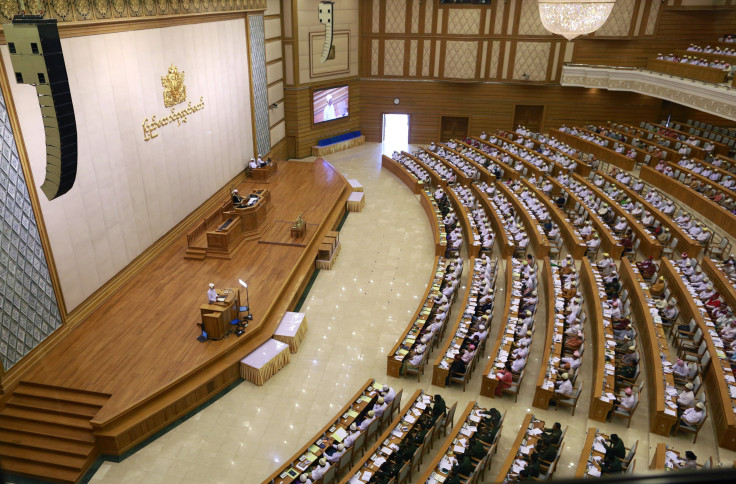Myanmar's President, Army Chief, Hold Unprecedented Talks With Suu Kyi

Myanmar’s president Thein Sein and the country’s military chief held unprecedented talks with Aung San Suu Kyi in the capital city of Naypyidaw on Friday, just a day after U.S. President Barack Obama had separate telephone conversations with the president and the opposition leader, according to media reports. The talks are reportedly the first of their kind since Suu Kyi -- a Nobel Peace Prize laureate -- rejoined the country’s political process in 2012.
The meeting comes just days after Myanmar’s government announced that the country’s next general elections would be held either in late October or early November of next year. Obama, speaking to Thein Sein on Thursday, urged him to ensure that the planned elections are “inclusive and credible,” according to media reports.
As of now, Suu Kyi, who was elected to parliament through a by-election in 2012, is constitutionally barred from running for president in next year’s elections. Obama also spoke to Suu Kyi about the upcoming elections and “expressed his appreciation for Aung San Suu Kyi's work to promote a more democratic Burma,” the White House reportedly said, in a statement.
Myanmar’s last general elections, held in 2010, were marred by accusations of lack of fairness, transparency and widespread electoral fraud. Suu Kyi’s National League for Democracy boycotted the elections, which were the first in the nation in two decades, reportedly terming the election rules unfair.
Obama, who is scheduled to visit Myanmar in mid-November to attend the East Asia summit, and Thein Sein also discussed the heightening of ethnic clashes between the minority Rohingya Muslims and the majority Buddhists, which have so far claimed over 200 lives since 2012 and displaced thousands of people, according to media reports.
Obama reportedly urged Thein Sein to take additional steps to address ethnic tensions in the eastern Rakhine state -- where the situation, according to the United Nations, remains “profoundly disturbing.”
© Copyright IBTimes 2025. All rights reserved.






















